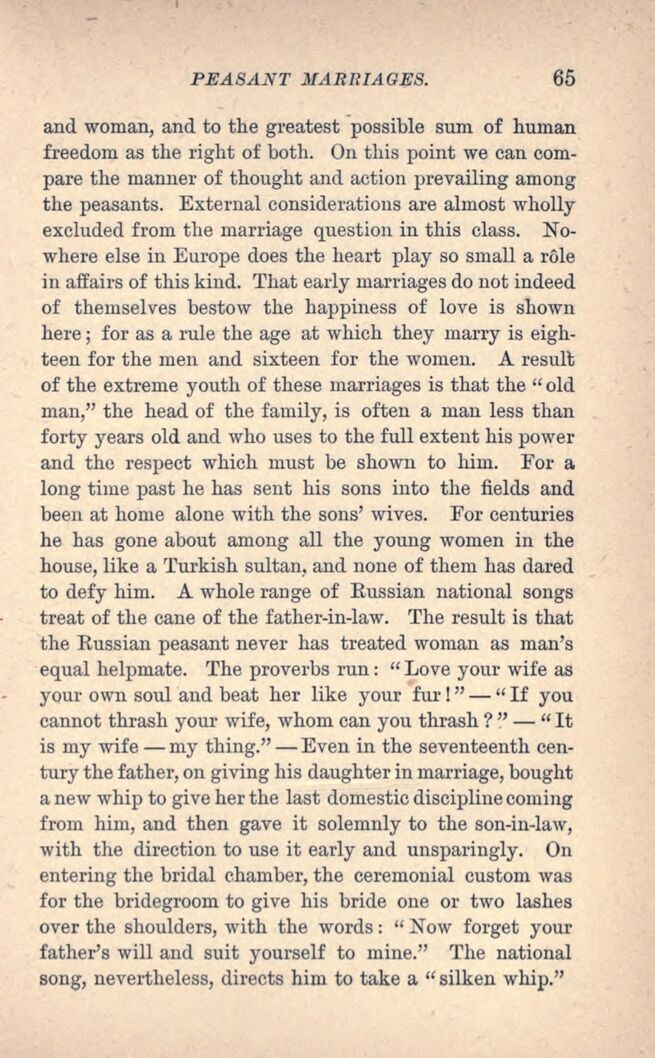
Full resolution (JPEG) - On this page / på denna sida - IV

<< prev. page << föreg. sida << >> nästa sida >> next page >>
Below is the raw OCR text
from the above scanned image.
Do you see an error? Proofread the page now!
Här nedan syns maskintolkade texten från faksimilbilden ovan.
Ser du något fel? Korrekturläs sidan nu!
This page has been proofread at least once.
(diff)
(history)
Denna sida har korrekturlästs minst en gång.
(skillnad)
(historik)
and woman, and to the greatest possible sum of human
freedom as the right of both. On this point we can
compare the manner of thought and action prevailing among
the peasants. External considerations are almost wholly
excluded from the marriage question in this class.
Nowhere else in Europe does the heart play so small a rôle
in affairs of this kind. That early marriages do not indeed
of themselves bestow the happiness of love is shown
here; for as a rule the age at which they marry is
eighteen for the men and sixteen for the women. A result
of the extreme youth of these marriages is that the “old
man,” the head of the family, is often a man less than
forty years old and who uses to the full extent his power
and the respect which must be shown to him. For a
long time past he has sent his sons into the fields and
been at home alone with the sons’ wives. For centuries
he has gone about among all the young women in the
house, like a Turkish sultan, and none of them has dared
to defy him. A whole range of Russian national songs
treat of the cane of the father-in-law. The result is that
the Russian peasant never has treated woman as man’s
equal helpmate. The proverbs run: “Love your wife as
your own soul and beat her like your fur!” — “If you
cannot thrash your wife, whom can you thrash?” — “It
is my wife — my thing.” — Even in the seventeenth
century the father, on giving his daughter in marriage, bought
a new whip to give her the last domestic discipline coming
from him, and then gave it solemnly to the son-in-law,
with the direction to use it early and unsparingly. On
entering the bridal chamber, the ceremonial custom was
for the bridegroom to give his bride one or two lashes
over the shoulders, with the words: “Now forget your
father’s will and suit yourself to mine.” The national
song, nevertheless, directs him to take a “silken whip.”
<< prev. page << föreg. sida << >> nästa sida >> next page >>